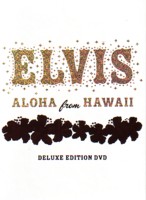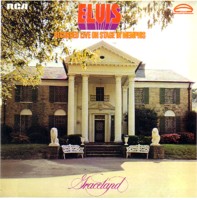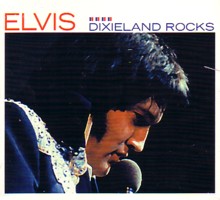Cliff
challenges EU rock'n'roll 'swindle'
By
Adam Sherwin, Media Reporter
|
IT
IS the greatest pension fund raid of all time. The stars
who created rock’n’roll are about to lose the rights
over the classic hits that made them famous. From January
1, 2005, anyone will be able to release landmark rock’n’roll
recordings such as Elvis Presley’s That’s All Right
without paying a penny in royalties to the performer
or their estates. But the rockers are fighting back.
Sir
Cliff Richard is launching a campaign to close a loophole
in European Union law, which means that artists and
record companies lose exclusive rights to their sound
recordings after 50 years. If he and others are unsuccessful,
the ruling will mean that the rock’n’roll years will
become a free-for-all, wiping billions of pounds off
the value of record companies.
|
 |
Releases
will fall into the public domain, year-by-year, with the Beatles’
catalogue becoming available from 2013. Recordings can be
digitally manipulated or used in films and advertisements
with the artist having no say over their repertoire.
Sir
Cliff, whose 1958 Move It single is cited as the first authentic
British “rock” hit, told The Times: “As I get older I am told
that I have achieved many chart ‘firsts’. Now I am the first
person to be deprived of income simply because I have outlived
the copyright on my sound recordings.” The most successful
singles artist in British chart history, Sir Cliff, 63, said
that he was leading a fight for music’s unsung heroes.
“I
am very fortunate because I continue to earn money,” said
the singer, who last night secured his 59th top ten album
with Something’s Goin’ On. “But what about the Shadows or
the families of Tommy Steele, Adam Faith or Lonnie Donegan?
Many artists rely on one hit record as their sole source of
income, but now they will earn nothing. I feel a responsibility
to speak out for them.”
Sir
Cliff, who is well known for his Christian beliefs, added:
“I am told that my recordings could even be used in pornographic
films and there’s not a thing I could do about it. I will
have no control over how my music is used. I believe performers
must be entitled to their dignity.” The British Phonographic
Industry and the International Federation of the Phonographic
Industry is lobbying the European Commission for an extension
of the copyright term. The bodies want the EU Term of Protection
directive to be brought in line with the United States which
has copyright on sound recordings to 95 years.
Composers
and writers in Britain continue to enjoy protection for 70
years after their death. Singers, such as Sir Cliff, who interpret
other people’s songs are at a particular disadvantage. He
has delivered his own submission to a review of EU copyright
legislation initiated by Frits Bolkestein, the outgoing Internal
Markets Commissioner. Introducing himself as “an active and
successful recording artist and performer” who has recorded
1,000 songs, he argues: “Surely the creativity of the artists
whose performances breathe life into the authors’ works is
worthy of recognition for at least the same period?”
The
Elvis Presley industry, which was worth £21.8 million from
Graceland admissions alone last year, will be the first to
suffer. That’s All Right and Blue Moon, his revolutionary
1954 recordings, are the first to enter the public domain,
with Love Me Tender and Heartbreak Hotel to follow soon. Bill
Haley’s Rock Around The Clock and Shake, Rattle and Roll,
are also available from January. Those who believe that music
should be “free” argue that the 50-year rule allows public
access to songs that record companies and artists have enjoyed
ample opportunity to exploit. But the BPI said that new bands
will miss out as record companies lose control over their
back catalogue. A spokesman said: “Labels rely on income from
past hits to invest in new talent”.
PROTECTING
A LIFETIME'S WORK
1492:
William Caxton introduces the printing press into England
1557 Queen Mary I hands all printing and bookselling to one
guild, the Stationer’s Company 1709 Statute of Queen Anne
is first copyright law in the world 1833 Dramatic Copyright
Act gives limited performing rights protection in dramatic
works 1842 Literary Copyright Act grants authors lifetime
property rights in their work and protects stage plays if
performed 1887 The Berne Convention for the Protection of
Literary and Artistic Works gives first international protection
for works including: novels, short stories, poems, plays,
songs, operas, symphonies, musicals, drawings, paintings,
sculptures and architectural works 1911 Parliament gives record
companies protection on sound recordings for 50 years to reproduce
work “by means of mechanical contrivances, such as gramophone
records and perforated piano rolls” 1961 Rome Convention for
the Protection of Performers, Producers of Phonograms and
Broadcasting Organisations gives Europe-wide protection against
recorded music piracy 1988 Copyright, Designs and Patents
Act harmonises UK with EU countries, but maintains 50-year
sound recordings limit 1998 The Digital Millennium Copyright
Act is enacted in the US to combat threat of Napster and internet
pirates. Criticised for being immediately obsolete Music Business
Journal
COUNTDOWN
January
1, 2005 Elvis Presley — That’s All Right, Blue Moon, Blue
Moon of Kentucky Bill Haley and his Comets — Shake, Rattle
and Roll, Rock Around The Clock Ray Charles — I Got a Woman
2006
Chuck Berry — Maybellene Bo Diddley — Bo Diddley Fats Domino
— Ain’t That a Shame
2007
Little Richard — Tutti Frutti Elvis — Heartbreak Hotel Chuck
Berry — Roll Over Beethoven James Brown — Please, Please,
Please Carl Perkins — Blue Suede Shoes Johnny Cash — I Walk
The Line Lonnie Donegan — Rock Island Line
2008
Cliff Richard — Move It Buddy Holly — That’ll Be The Day Everly
Brothers — Bye Bye Love Jerry Lee Lewis — Whole Lotta Shakin’
Sam Cooke — You Send Me
2009
Eddie Cochran — Summertime Blues - Dion
& The Belmonts — I Wonder Why Bobby Freeman — Do You Wanna
Dance?
2010
Ben E. King — Stand By Me
2013
The Beatles — Love Me Do Bob Dylan — Blowin’ In The Wind
2014
The Rolling Stones — Come On/I Wanna Be Your Man The Beach
Boys — Surfin’ USA
2016
The Who — My Generation ; The
Beatles — Yesterday
(Spotlight/Article,
Source The Times)
|







